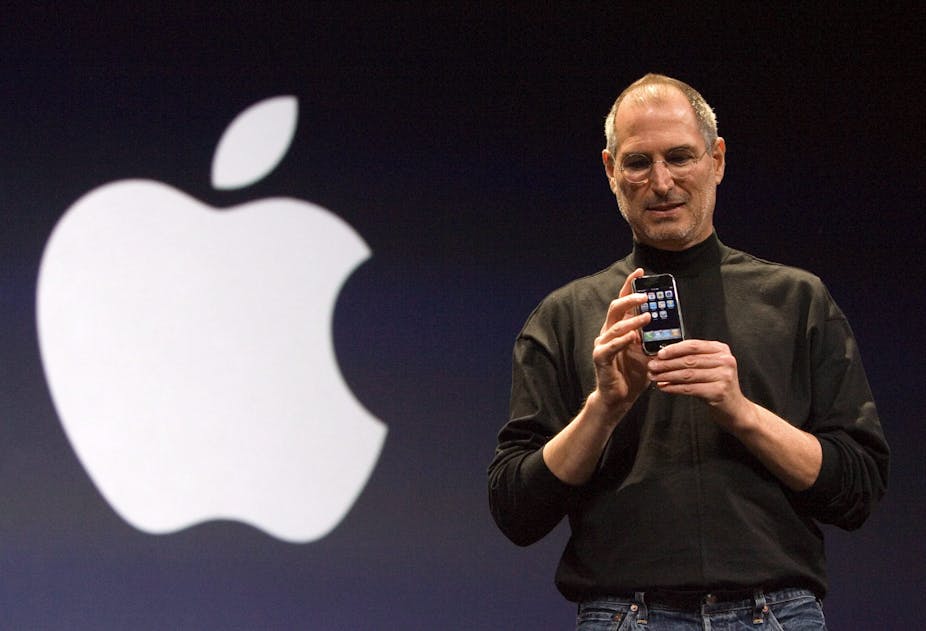Steve Jobs, Apple CEO, hit back at reports yesterday that the company’s iPhones track the movements of its 100 million users.
The charge was that Apple was storing a database of this information, to which Jobs is purported to have said: “We don’t track anyone. The info circulating around is false.”
Is this statement a defensible position for Apple? Well, yes and no.
One fact that is indisputable is that your iPhone is logging detailed information about your location in a file, known as a consolidated.db. And this file is backed up to your computer every time you sync.
The iPhoneTracker application can recover and display the information in this file. You can try this for yourself if you have an iPhone, or know someone who does.
When I checked my iPhone logs I was surprised how many places I’d forgotten I’d visited in the past few months!
There is no evidence that Apple ever accesses or receives this information, or indeed that any third-party application uses this file.
So reports to the contrary may indeed be “false” and are at the very least unsubstantiated.
But the central piece of “info circulating” – that your iPhone maintains a log of where you have been (i.e. “tracks” you) – is unequivocally true.
We already know that many popular apps that we voluntarily install on our iPhones do communicate our location and other personal information to third parties, and often without our permission.
And Google’s Android fares no better in this matter.
So it seems illogical to be so concerned about whether or not the consolidated.db file is being misused to invade our location privacy, when already we know of many other apps doing this anyway (with or without consolidated.db).
Even though some third party apps access your location illicitly, there is no reason to disbelieve Steve Jobs’ assertion that the people at Apple “don’t track anyone”.
But that being the case, the question remains: why does the iPhone log your location information in the first place?
There are three main reasons why this information might be stored.
1) It’s an honest mistake. The adage “never forget what you knew” is often quoted to students of databases and computer programming.
Storing data is cheap and easy, so designers and developers often opt to log any data generated by an application even after it has been used, just in case it comes in handy again.
2) This information could be important to other iPhone functions. For example, most smartphones today use a combination of positioning systems to determine where you are located.
The on-board GPS is the slowest of these, potentially requiring several minutes for time-to-first-fix (TTFF) when powered up.
TTFF can be considerably reduced if your phone already knows roughly where you are, which could be inferred using past logs of your location.
3) Marketing and surveillance. Even if Apple currently don’t use your data for these purposes, no-one would deny that such personal location data is potentially extremely valuable.
Your location can be used by marketers to infer both what services you access (e.g. which shops you pass or visit regularly) and what sorts of activities you are interested in (and so what products you are more likely to purchase).
Logging our location could be a prelude to later on using it for these purposes, even if it is not currently used this way.
A recent article in The Guardian newspaper points out that in accepting the iTunes terms and conditions we explicitly grant Apple permission to make use of our location data as it sees fit.
The real issue here is not that the location information is generated, which we already knew, nor that it is logged, which is not really such a big step from what we already knew. It is to whom, if anyone, this information is communicated.
A fundamental flaw common to the design of all today’s smartphones is that they provide little or no transparency around the communication of personal location data.
We trust that our devices will secure our permission before transmitting personal location data, but none of the smartphones on the market today – the iPhone included – gives us any guarantees.

